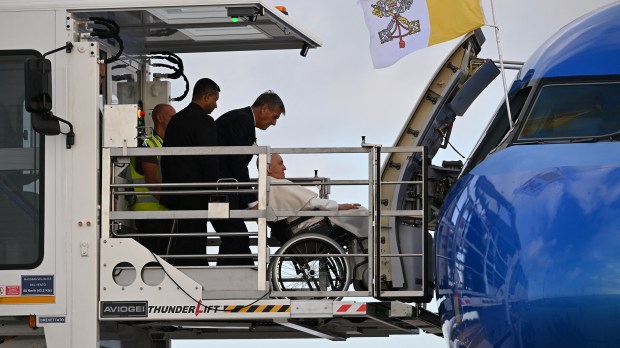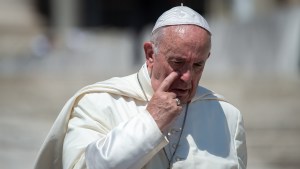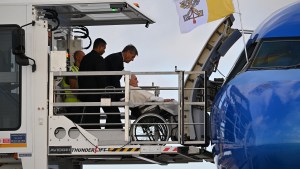The cancellation of Pope Francis’ trip to Dubai, scheduled December 1-3, 2023, for the COP28, is the third cancellation of his pontificate. He had already been forced to cancel his trip to Malta in 2020 due to the COVID-19 pandemic, and then to the Democratic Republic of Congo and South Sudan in 2022, this time due to knee pain (though the unrest at his destination surely also played a part in the decision). Despite those changes of plans, he was able to visit all three countries afterwards.
The contemporary history of the papacy has been marked by other trip cancellations, mostly due to geopolitical situations. John Paul II canceled a major trip to Sarajevo in 1994 due to security threats, and Paul VI was unable to visit Poland in 1966 due to opposition from the Communist regime.
“The doctors have asked the Pope not to make the trip to Dubai planned for the next few days,” explained Matteo Bruni, director of the Holy See Press Office in a statement issued on the evening of November 28, 2023. He added, however, that “the Holy Father’s general clinical condition regarding his flu-like condition and the inflammation of his respiratory tract [had] improved” in recent days.
The Pontiff already had to reduce his schedule and let someone speak in his place at the Angelus on November 26 and the general audience on November 29. Now, “he has accepted with great regret the doctors’ request and the trip is therefore canceled,” Bruni added.
Past cancellations
On June 10, 2022, the announcement of the cancellation of the Pope’s planned visit the following month to the Democratic Republic of Congo and South Sudan was received with sorrow by the local Churches. Pope Francis was nevertheless able to visit these two countries from January 31 to February 5, 2023. However, he didn’t make the initially planned stopover in Goma, a city torn apart by the war between the regular Congolese army and the M-23 rebels.
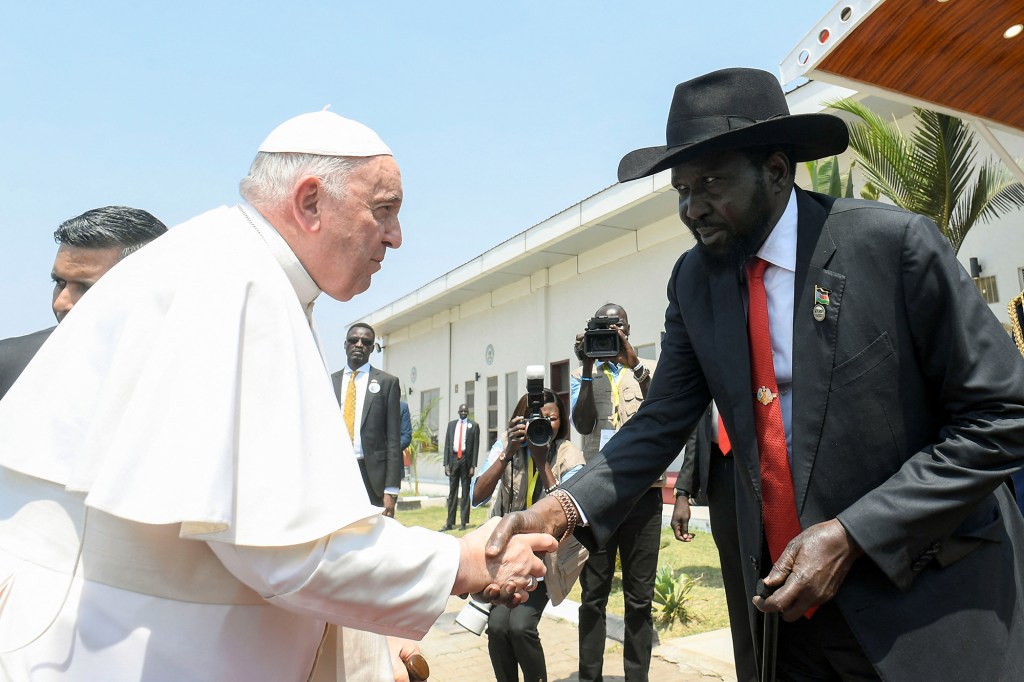
The previous cancellation of an already scheduled international trip dates back to the trip to Malta scheduled for May 31, 2020. This one-day visit by Pope Francis was canceled due to the COVID-19 pandemic, and 2020 was the first year without a papal trip abroad since 1978.
In the end, the trip to Malta was rescheduled over two days, on April 2 and 3, 2022, and was able to proceed normally. The Pope’s mobility problems prevented him from using stairs on that trip.
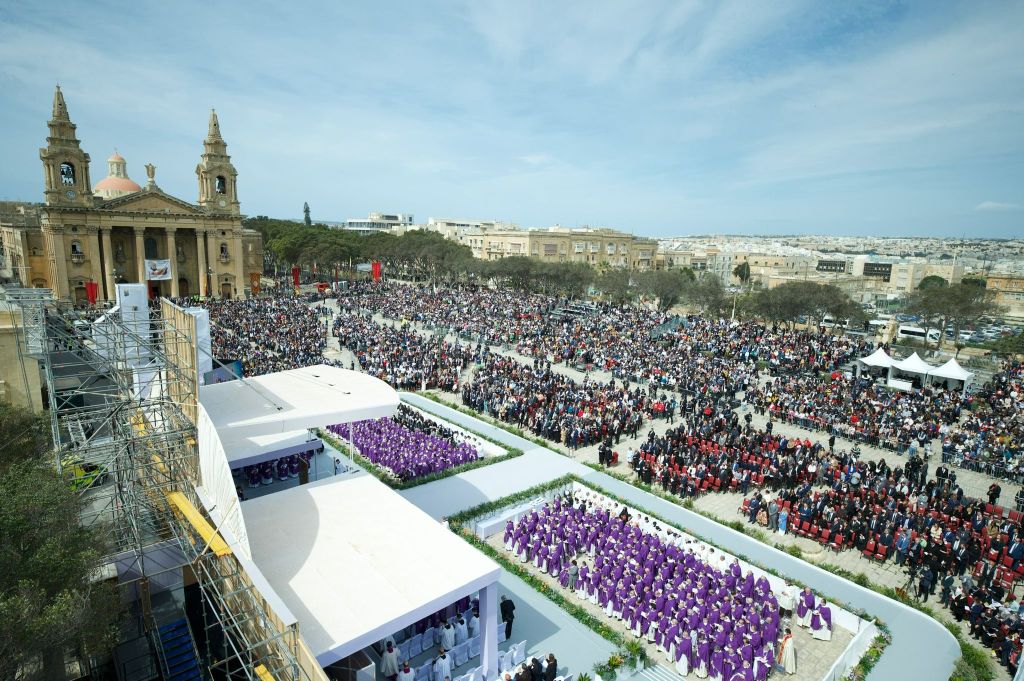
On February 27, 2022, much was written about the cancellation of the Pope’s visit to Florence, where he was due to celebrate the closing Mass of the Meeting of Mediterranean Bishops and Mayors. While the official reason was knee pain, some interpreted the cancellation as being linked to a conflict between the Pope and the Italian Episcopal Conference.
Unofficial plans that fell through
The trip to Lebanon scheduled for June 11 and 12, 2022, had not been formally announced by the Holy See, and no formal declaration was made of its postponement. The premature announcement of this trip by the Lebanese authorities turned out to be a diplomatic error, as the Holy See is always keen to be the first to announce trips. The vacancy of the presidency of the Republic since October 31, 2022, has made it impossible to plan an apostolic trip to Lebanon for the time being.
Other hoped-for trips announced by local bishops have not been able to take place, notably to Spain in 2015, due to internal disagreements within the episcopate, or to COP26 in Glasgow, Scotland, in 2021.
Paul VI’s cancellations
The history of the contemporary papacy is not exempt from other unforeseen events and cancellations. Paul VI gave up international travel for a long period, from 1970 to 1978, after an exhausting final tour of Asia and Oceania.
During the first six years of his pontificate, the first pope to fly had visited far-flung lands such as Colombia, Uganda, and even Samoa. However, an invitation to visit Poland in 1966 for the millennium of the baptism of King Mieszko I could not be honored due to the refusal of the Communist authorities to give international prominence to these celebrations.
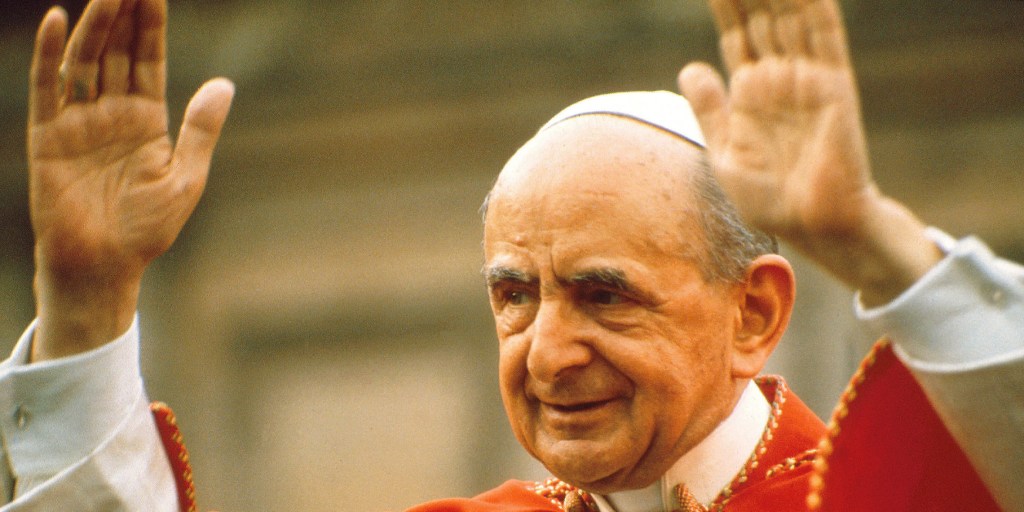
“We were not allowed to make this pilgrimage,” Paul VI bitterly declared, celebrating Mass in Rome for the Polish community on May 15, 1966. “Naturally, we were deeply saddened, also because of our personal affection for Poland. We are convinced that the reasons which oppose the realization of our pilgrimage, and which are imputed to the acts and attitudes of the most venerable Cardinal Wyszynski, are not justified,” the Italian Pope said.
John Paul II: Hong Kong and Sarajevo
Pope John Paul II has gone down in history as a globetrotting pope, but he too had to abandon many projects. While Paul VI was able to visit Hong Kong briefly during his Asian tour in 1970, the Polish pope’s plans for a stopover there in the 1980s failed to materialize. The cause was pressure from Communist China, which regained control of the former British colony on July 1, 1997.
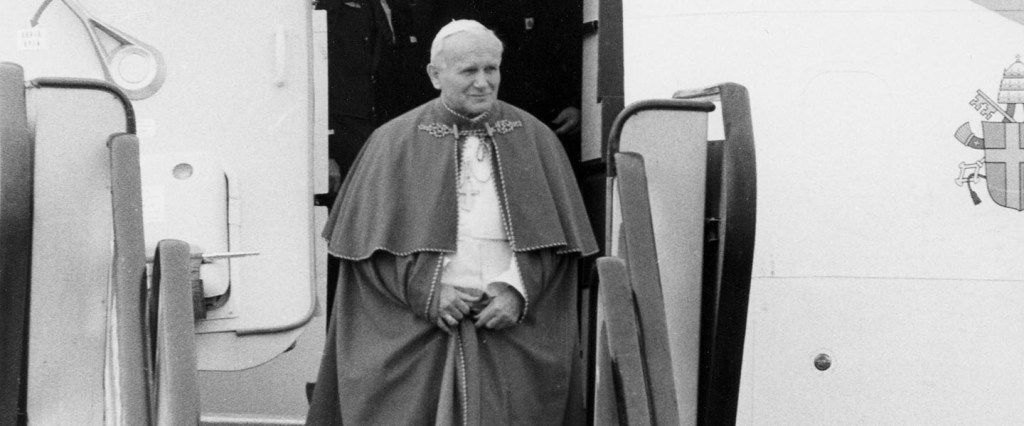
Another cancellation marked John Paul II’s pontificate, this time of an officially scheduled trip. His visit to Sarajevo scheduled for September 8, 1994, was canceled at the last minute for security reasons. The Bosnian city was then under siege by the Serbs, whose leader Radovan Karadzic had declared that his militiamen “could not guarantee the Pope’s safety during his stay in Sarajevo.” The UN envoy for the former Yugoslavia had warned the Pope of the “serious dangers” of traveling within sniper range.
John Paul II canceled with regret, all the more so as 1994 also marked the 80th anniversary of the assassination of Archduke Franz Ferdinand on June 28, 1914, which sparked the First World War. He finally went on April 12 and 13, 1997, to a Bosnia still divided but independent and free from war.
Iraq, John Paul II’s unfulfilled dream
Another trip John Paul II had to cancel was his planned visit to Ur, the city of Abraham in present-day Iraq, during his multi-country pilgrimage in the footsteps of the Old Testament prophets for the Jubilee Year 2000. The risk of this visit being manipulated by Saddam Hussein’s regime dissuaded him. However, John Paul II’s dream would finally be fulfilled by Pope Francis on March 6, 2021, during a memorable inter-religious celebration.
A trip by John Paul II to Mongolia scheduled for late summer 2003 was canceled due to the Polish pontiff’s state of health. The Churches of Asia reported that the reason for the postponement was in part so they could organize a stopover in Kazan, Russia. This would be in order to hand over to the Russian Orthodox Church the icon of the Holy Virgin of Kazan that the Catholic Church had acquired a few years earlier.
In the end, it was Cardinal Walter Kasper, then President of the Pontifical Council for Christian Unity, who visited Russia a year later to make this symbolic gesture. While no pope has yet visited Russia, Pope Francis did visit Mongolia from August 31 to September 4, 2023, exactly 20 years after John Paul II’s unfulfilled project.

Benedict XVI
Benedict XVI made all his announced trips. But after his resignation on February 11, 2013, one of the official reasons given for this decision was his doctors’ advice to avoid long-distance travel. The prospect of the 2013 WYD in Brazil was therefore said to weigh heavily in his decision to retire. This fact is likely to rekindle questions about Pope Francis’ ability to continue a pontificate in which travel plays a strategic role.
